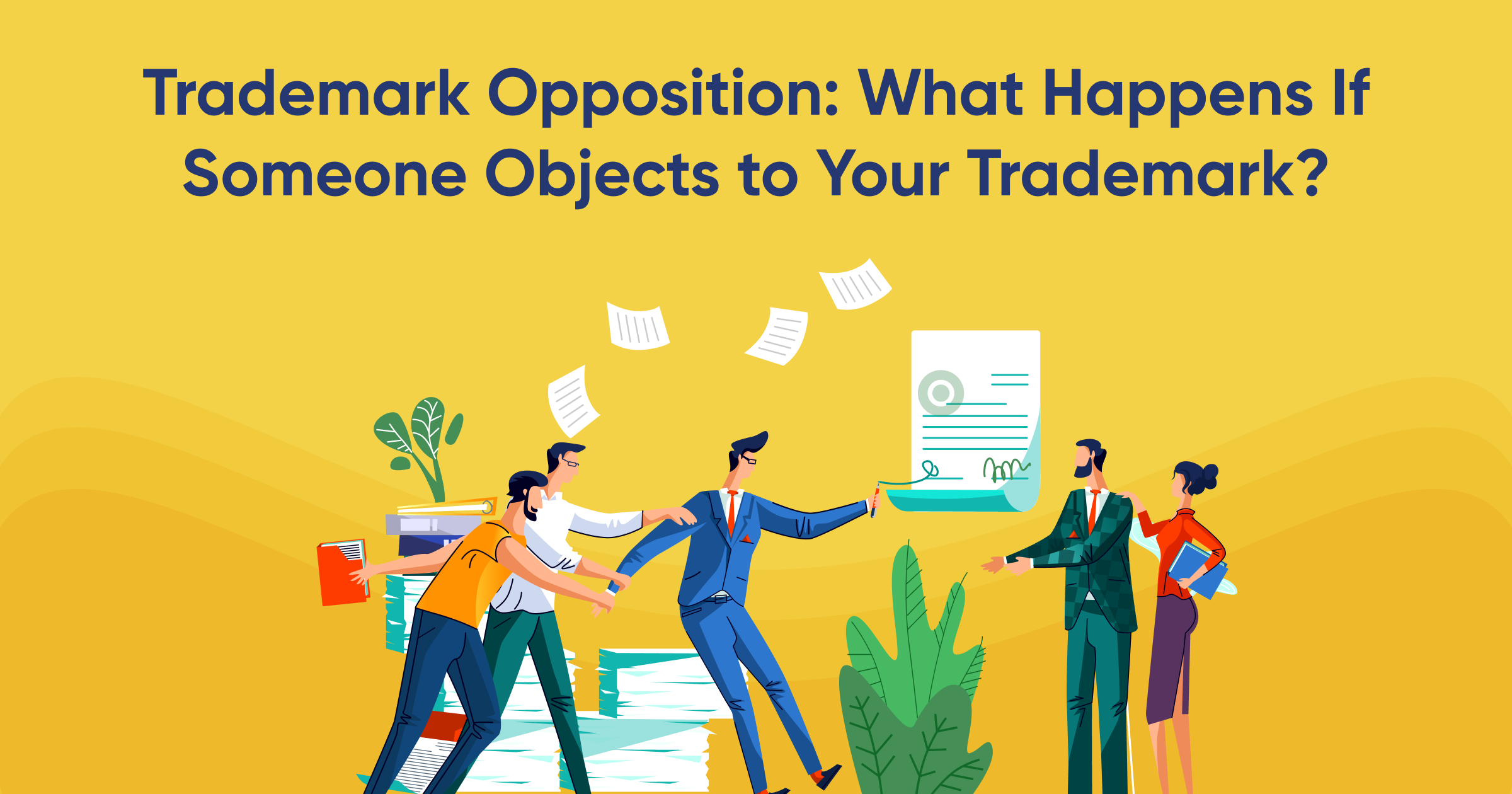Choosing a catchy name, logo, or design for a trademark registration is a notable achievement in brand creation. However, when an application is submitted for registration, it goes through multiple search phases. This leads to a collision with similar trademarks, designs, or logos, which leads to trademark opposition. Every business owner or trademark registration person must know the opposition process, its reasons, and possible challenges. This article gives the required insights on the trademark opposition process in India.
What Is Trademark Opposition?
Trademark opposition is a judicial procedure through which others may oppose a trademark application once it is accepted by the Registrar and published in the Trademark Journal. Anyone, not only the owners of registered trademarks, may submit these objections within four months of the mark's publication.
Opposition is intended to prevent potential problems within the marketplace. If an individual or business feels that a new trademark will encroach on their rights, it will confuse consumers, or mislead the public, they can submit an objection.
For instance, an application for the trademark “TechFriends” in the software category could face opposition from an entity already operating under the name “TechFriendz” due to potential confusion in the minds of consumers.
Who Can File an Opposition and On What Grounds?
In the Indian trademark system, opposition can be initiated by any party—individuals, businesses, NGOs, or even trusts. There is no requirement for the opponent to be a prior registrant of a trademark; a valid interest or concern is sufficient to initiate the process.
Common grounds for filing a trademark opposition include:
- The proposed mark is identical or deceptively similar to an existing registered or pending trademark
- The mark lacks distinctiveness or is merely descriptive
- The application was made in bad faith or with dishonest intentions
- The mark is likely to cause confusion or mislead the public
- The trademark is restricted under the Emblems and Names (Prevention of Improper Use) Act, 1950
Any proposed mark that infringes upon existing rights or poses a risk to market integrity can be contested through this mechanism.
The Trademark Opposition Process in India
Once a trademark is published in the ‘Trademark Journal’, the opposition window opens for a period of four months. Any objection must be filed within this timeframe using Form TM-O.
Step-by-Step Overview:
- Notice of Opposition: The opposing party files Form TM-O, citing the reasons for the objection along with supporting documents.
- Counter-Statement: The trademark applicant is required to submit a counter-statement within two months of receiving the opposition notice. Failure to do so results in the application being deemed abandoned.
- Submission of Evidence: Both parties submit their respective evidence through affidavits, documents, and any other supporting materials.
- Hearing: After the evidence stage, both sides are allowed to present their arguments before the Registrar.
- Decision: The Registrar evaluates the case based on evidence and legal arguments and then makes a final decision. If the opposition is upheld, the trademark application is refused. If dismissed, the application proceeds to registration.
Depending on the complexity of the case and the current caseload at the Trademark Office, this process can extend over several months or even years.
Fees Associated with Trademark Opposition
The official fee for filing a trademark opposition in India is as follows:
- Form TM-O (Online Filing): ₹2,700 per class
- Form TM-O (Physical Filing): ₹3,000 per class
The fee is applied per class, meaning multiple fees may apply if the objection concerns several trademark classes.
While the trademark applicant does not incur government fees when submitting a counter-statement, legal representation or advisory services may attract additional costs depending on the professional hired.
Responding to a Trademark Opposition
Receiving an opposition notice can be concerning, but it is not uncommon. Many trademarks face objections and still move forward. It is important to approach the matter strategically:
- Review the Opposition Grounds: Carefully analyze the objections raised to understand the nature and basis of the concerns
- Seek Legal Guidance: Engaging a trademark attorney can ensure that the response is well-prepared and complies with legal protocols
- Prepare Supporting Evidence: Collect documents that establish the legitimacy and distinctiveness of the mark, such as marketing materials, prior usage, domain names, and consumer recognition
- Adhere to Timelines: The two-month deadline to file a counter-statement is non-negotiable. Any delay can lead to automatic abandonment of the application
A professional and methodical response increases the likelihood of a favorable outcome.
What Happens After the Opposition Decision?
Following the hearing and final submissions, the Registrar issues a decision:
- If the opposition is successful, the application is rejected. The applicant may then choose to file an appeal, amend the trademark, or initiate a new application
- If the opposition is dismissed, the application continues through the registration process. Upon completion, the registration certificate is issued
Even after registration, trademarks remain open to challenge under rectification proceedings. Maintaining the mark’s integrity and regular monitoring remain essential for long-term protection.
To mitigate future risks:
- Regularly monitor the Trademark Journal for conflicting filings
- Act quickly upon noticing any potentially infringing marks
- Maintain active and consistent use of the registered trademark
Final Thoughts
Trademark opposition is a vital mechanism in India’s intellectual property landscape. Although it may appear to be an obstacle, it plays a protective role in ensuring fair competition and preventing confusion in the marketplace.
For businesses and brand owners, having a distinctive and original mark, filed in good faith, significantly strengthens the chances of overcoming objections. A well-informed and professional approach can go a long way in securing trademark rights even in the face of opposition. Need assistance with a trademark objection? Timely advice and the right legal strategy can make all the difference. Visit Trademarkia India to make your brand certified.

